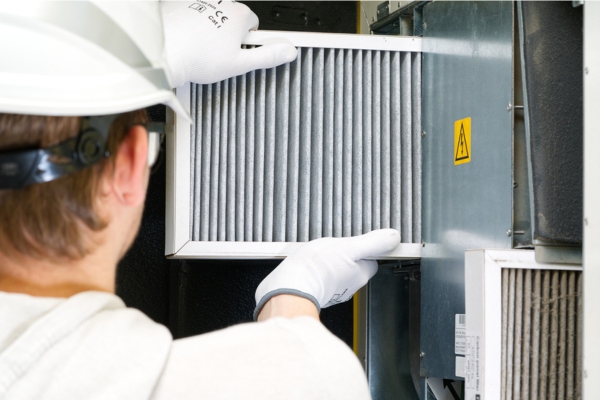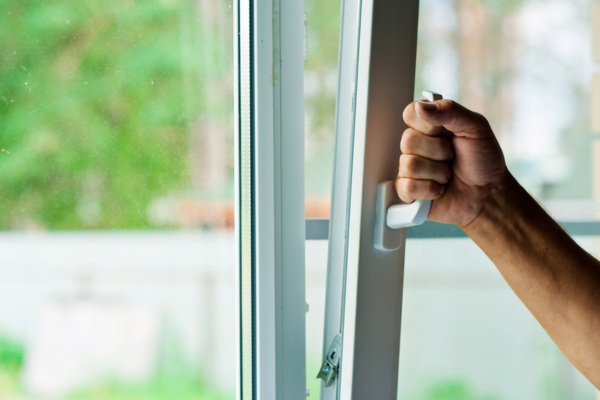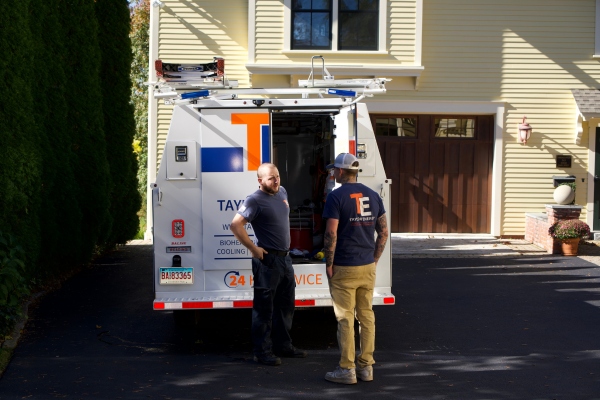Contents
Countless Americans grapple with allergies annually, and the severity varies widely due to individual sensitivities and environmental factors. For those impacted, transforming their living space can significantly enhance comfort. Enduring discomfort is no longer a necessity.
Addressing this challenge directly through lifestyle adjustments and technological solutions, including your HVAC system, can markedly reduce the inconvenience during allergy season. Taking active steps towards managing your environment can ensure a smoother experience through the peak allergy periods.
Conversely, inaction can lead to your HVAC system exacerbating your symptoms, known as HVAC allergies. In this article by Taylor Energy, discover how to effectively leverage your HVAC system in the fight against seasonal allergies.
Strategies to Alleviate Seasonal Allergies This Year
This article explores strategies to transform your HVAC system into an ally for better health.
Replace HVAC Filter

Our environment is laden with unseen pollutants that may provoke allergies and respiratory conditions. Although invisible to the naked eye, their presence is sometimes shown by the particles dancing in the sunlight streaming through your windows. HVAC systems come with filters designed to capture these dust and dirt particles, thereby reducing allergens and safeguarding the system.
Regular replacement of these filters, as recommended by manufacturers, is crucial to avoid airflow obstruction that can diminish system efficiency and decrease lifespan. It’s advisable to change your air filters every one to three months, tailored to the rate of debris accumulation, to maintain optimal indoor air quality and equipment performance.
Take charge of your comfort this allergy season with proactive HVAC management. Contact Taylor Energy now!
Switch to HEPA Filters
Standard HVAC systems are typically outfitted with basic air filters designed primarily to catch large particles, leaving smaller allergens like pollen to circulate freely due to the filters’ broad mesh. This design prioritizes the system’s protection from larger airborne particles that might impair its functionality rather than focusing on the microscopic allergens that can adversely affect occupants’ health.
For those seeking to reduce indoor allergens significantly, HEPA (High-Efficiency Particulate Air) filters offer a solution with their fine mesh capable of trapping a vast array of allergens, ensuring they no longer pose a health risk. However, it’s important to note that the enhanced filtration provided by HEPA filters can restrict airflow, necessitating modifications to your HVAC system to maintain optimal performance.
Consulting with an HVAC specialist is recommended to identify the most suitable adjustments and filter options for your specific setup.
Maintain Cleanliness on All Surfaces
Allergens entering your home won’t remain airborne indefinitely; they settle on surfaces like floors, desks, and beds. Regularly cleaning these areas, especially in your living spaces, is crucial. Avoid using feather dusters or brooms, as they merely disperse particles into the air.
Opt for a powerful vacuum cleaner to remove dust, dirt, and pollen. Without a vacuum, a damp cloth can be a practical alternative. Wring out the fabric after dipping it in water to ensure it picks up dirt efficiently. Additionally, washing your bedding weekly or as frequently as possible minimizes allergen presence.
Trust the Taylor Energy experts to enhance indoor air quality and alleviate allergy symptoms by keeping your HVAC system clean. Contact us today!
Operate Your HVAC System Consistently
Just as stagnant water can pose health risks by fostering the growth of bacteria and becoming a breeding ground for insects, stagnant air within a home can be equally problematic. Indoor air can’t refresh without proper circulation, causing pollutants to accumulate to unhealthy levels.
Activating your air conditioning periodically, regardless of the perceived need for cooling, can significantly improve home ventilation. This process encourages air circulation, with the system drawing in fresh outdoor air and removing stale indoor air. For optimal air quality, engage your AC for at least 20 minutes daily.
Incorporate UV Light for Enhanced Sanitation
Ultraviolet (UV) light acts as a powerful disinfectant, facilitating clothes drying in the sun and killing bacteria to freshen them. Its capacity to neutralize pathogens at the molecular level makes it effective in water treatment applications.
Similarly, installing smaller UV light units within HVAC systems can eradicate allergens and pathogens, preventing the circulation of contaminated air throughout your home. This addition can significantly boost indoor air quality, contributing to a healthier living environment.
Seal Openings in Walls and Windows

Merely closing doors and windows might not suffice to block pollen intrusion. Many homes exhibit cracks or gaps around doors and windows, acting as conduits for unfiltered air. Inspect your residence for such vulnerabilities.
If detected, employing caulk, weather stripping, or spray foam can effectively obstruct these unintended airflows. Additionally, ensure windows remain shut during early mornings when pollen counts typically peak to minimize allergen entry further.
Implement a Whole-House Humidifier System
Monitoring your home’s humidity levels provides insight into your environmental conditions, with an ideal range of around 40%. Low humidity allows allergens to linger in the air longer, increasing the risk of reactions in sensitive individuals.
Conversely, high humidity fosters mold and mildew growth. To maintain a healthy balance, consider installing a whole-house humidifier or dehumidifier based on your specific needs, ensuring your indoor air quality remains optimal for everyone’s comfort and health.
Schedule Yearly HVAC Cleaning and Maintenance

Given the complexity of allergies, it’s wise to seek professional help for severe reactions. Similarly, improving your home’s indoor air quality often requires the expertise of HVAC contractors. Commit to annual HVAC system cleanings and maintenance checks. This facilitates easier breathing and enhances the system’s efficiency and reliability, contributing to a healthier living environment and potentially reducing the severity of allergy symptoms.
Ensure your home is a haven from seasonal allergies. Schedule a yearly HVAC cleaning and maintenance check with Taylor Energy! Call us today!
Conclusion
Allergy season, particularly in spring, presents a significant challenge with the abundance of pollen and other allergens. To safeguard your health within your home, keep windows closed, maintain cleanliness, and utilize your HVAC system as a primary tool for filtering air.
Professional technicians are invaluable for optimal air quality management, including HEPA filter upgrades, UV light installations, and routine HVAC maintenance. They play a crucial role in ensuring your comfort by significantly improving the air quality you breathe indoors.
Call Taylor Energy for Comprehensive HVAC Solutions
Taylor Energy provides exceptional heating and cooling solutions across Northern Connecticut. Our team consists of highly certified technicians dedicated to offering premium HVAC maintenance, repair, installation, and replacement services. With extensive knowledge and experience, Taylor Energy’s professionals ensure your HVAC system operates flawlessly.
At Taylor Energy, we pride ourselves on offering competitive rates for heating and cooling services. Our maintenance programs aim to enhance comfort, boost energy efficiency, and reduce cooling and heating bills. Whether you need an HVAC system repair or are considering a replacement, we can guide you to the best options within your budget.
We stand behind our work with a solid satisfaction guarantee. Contact Taylor Energy today to schedule a service appointment or receive a free, in-home estimate.
Click here to contact us now, or call us at (860) 623-3308 to find out more! Click the link to view our service area.

Related Articles:
